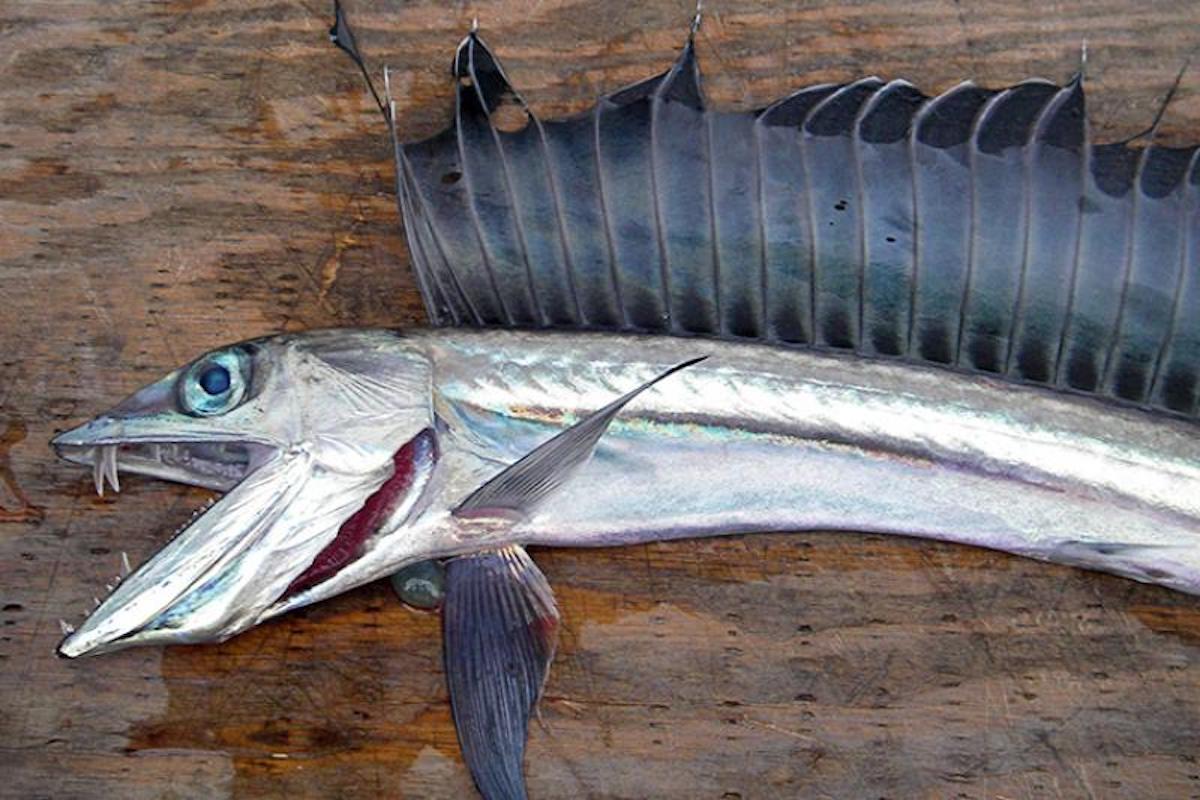

The lancetfish is a predatory fish with huge eyes, long fangs, and a skinny scaleless body. When this serpent-like creature isn’t eating its own kind, it’s ambushing prey deep below the ocean’s surface. They belong to prehistoric times. What’s more, they’ve been washing up on beaches in Oregon and “no one is sure why.”
Videos by Outdoors with Bear Grylls
That partial quote was from an announcement by Oregon State Parks because lancetfish typically live in warmer areas. Although some have been found migrating as far north as Alaska’s Bering Sea, they’re most often seen in tropical and subtropical areas.
If you’ve never heard of a lancetfish, don’t feel bad. It’s not a commercial fish, so people don’t eat it. Experts at the National Oceanic and Atmospheric Administration say the inside of a lancetfish is watery and gelatinous. While it might not be appetizing to humans, other predators like sharks, tuna, and fur seals don’t mind it.
However, the fish’s flesh could help you imagine why they’re washing ashore in place like Oregon and California. Experts say gelatinous muscles are built for floating rather than long chases. And that also means they’re weak swimmers and most likely got too close to shore and couldn’t escape the current.
Experts say their floating bodies make them better ambush hunters, meaning they quietly wait camouflaged in the water until an unsuspecting fish passes by and then strikes.
And lancetfish bodies have another feature that entices scientists: they have a slow digestive system. What that means is scientists can learn more about what sea creatures live in dark and near-freezing temperatures found about a mile deep in the ocean.
“When we look in lancetfish stomachs, their prey is really undigested,” said Phoebe Woodworth-Jefcoats, a NOAA researcher. “They look almost exactly like the fish you would see swimming around in the ocean.”
While experts don’t have any definitive answers for why lancetfish are ending up on beaches, this story has a happy ending. The lancetfish that washed ashore in Oregon most recently was still alive. It was helped back into the ocean and swam away.









